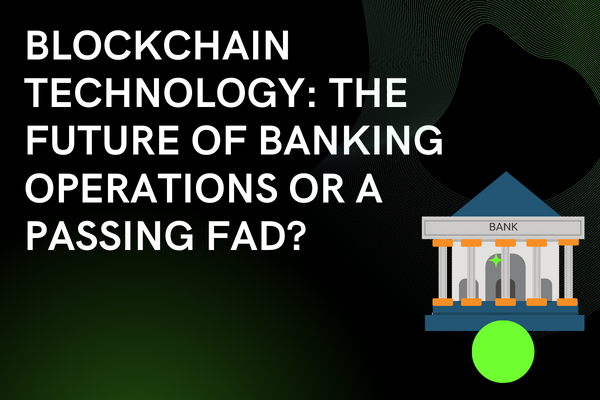Blockchain technology has the potential to revolutionize the way we conduct financial transactions, and its impact on the banking industry cannot be overstated. The technology has already made its mark in various industries, and finance is no exception. This article explores how blockchain technology can benefit us in the realm of finance and specifically, in the operations of banking institutions.
First, let’s understand what blockchain technology is. At its core, blockchain is a distributed digital ledger that records transactions in a secure, transparent, and immutable way. Each transaction is verified and approved by a network of participants, and once it’s validated, it is added to the blockchain. This decentralized approach eliminates the need for intermediaries, such as banks or payment processors, to verify and approve transactions. This means that blockchain technology can make transactions faster, cheaper, and more secure than traditional banking methods.
One of the most significant benefits of blockchain technology for the banking industry is the potential to reduce fraud and cybercrime. As the technology creates a tamper-proof ledger of transactions, it becomes incredibly difficult for hackers to alter or corrupt the information stored on the blockchain. This is because any changes made to the data would require the hacker to alter all the copies of the ledger across the network, making it nearly impossible to do so without detection.
Another advantage of blockchain technology in finance is that it provides a high level of transparency. This means that all parties involved in a transaction can view the details of the transaction, including its status and progress, in real-time. This level of transparency can be a game-changer for the banking industry, as it can provide greater trust and confidence among customers.

The implementation of blockchain technology can also help banks reduce their operational costs. By eliminating the need for intermediaries, banks can streamline their processes and reduce the need for manual interventions. This will allow banks to operate more efficiently, reduce the risk of errors, and increase the speed of transactions.
Moreover, blockchain technology can enable banks to provide a better customer experience by simplifying their services. Customers will be able to make transactions quickly and easily, without the need for lengthy verification processes or multiple approvals. With the ability to make faster and cheaper transactions, customers can save time and money, and the banking industry can increase its overall efficiency.
Furthermore, blockchain technology can facilitate cross-border transactions by eliminating the need for intermediaries such as correspondent banks. With the traditional banking system, cross-border transactions can take several days to clear, and fees can be significant. However, with blockchain technology, cross-border transactions can be completed in a matter of seconds and with lower fees, providing a significant benefit to banks and customers alike.
In conclusion, the implementation of blockchain technology in the banking industry has the potential to revolutionize the way we conduct financial transactions. With its ability to reduce fraud, increase transparency, streamline processes, and lower costs, blockchain technology can provide significant benefits to both banks and their customers. As the technology continues to evolve, we can expect to see more banks adopt it to stay ahead of the competition and provide better services to their customers.




